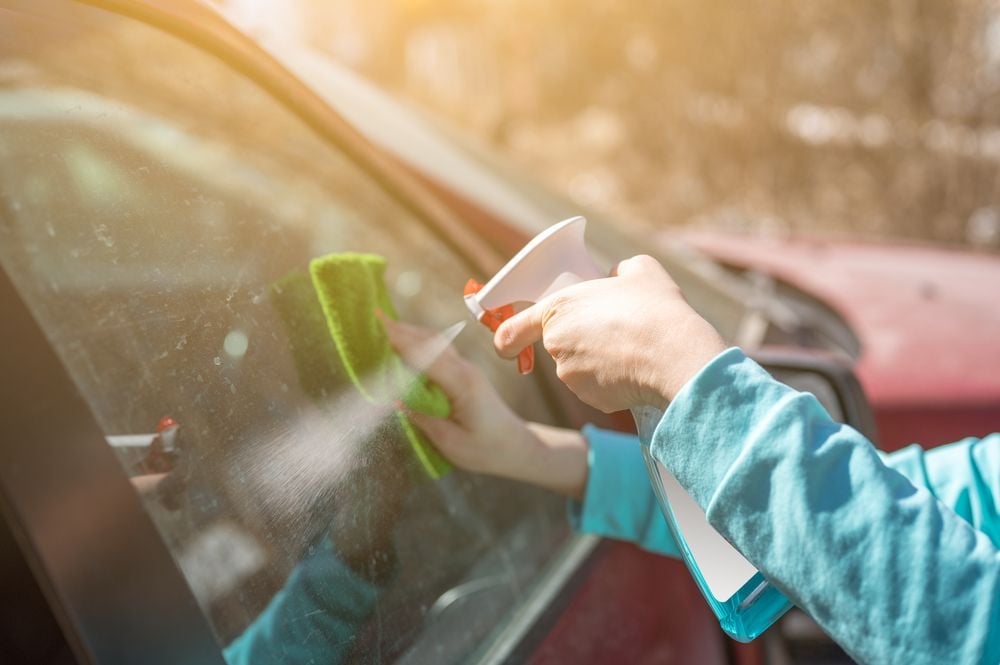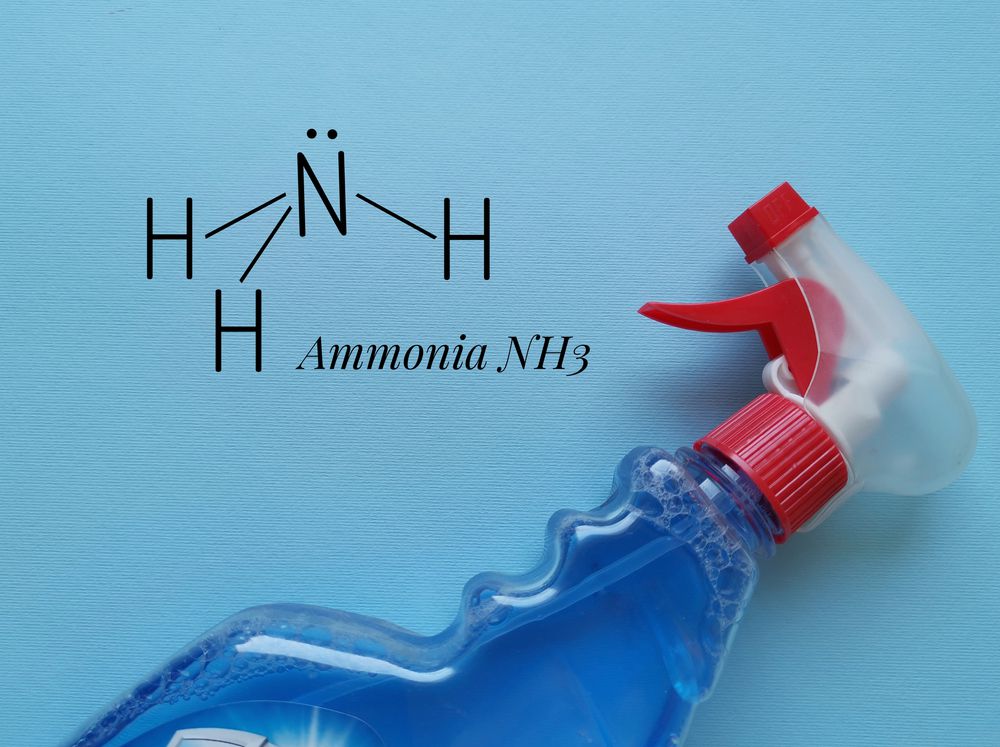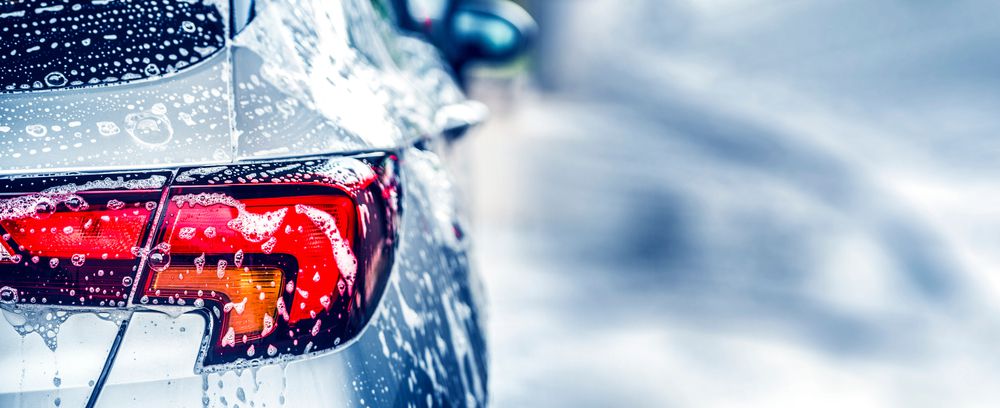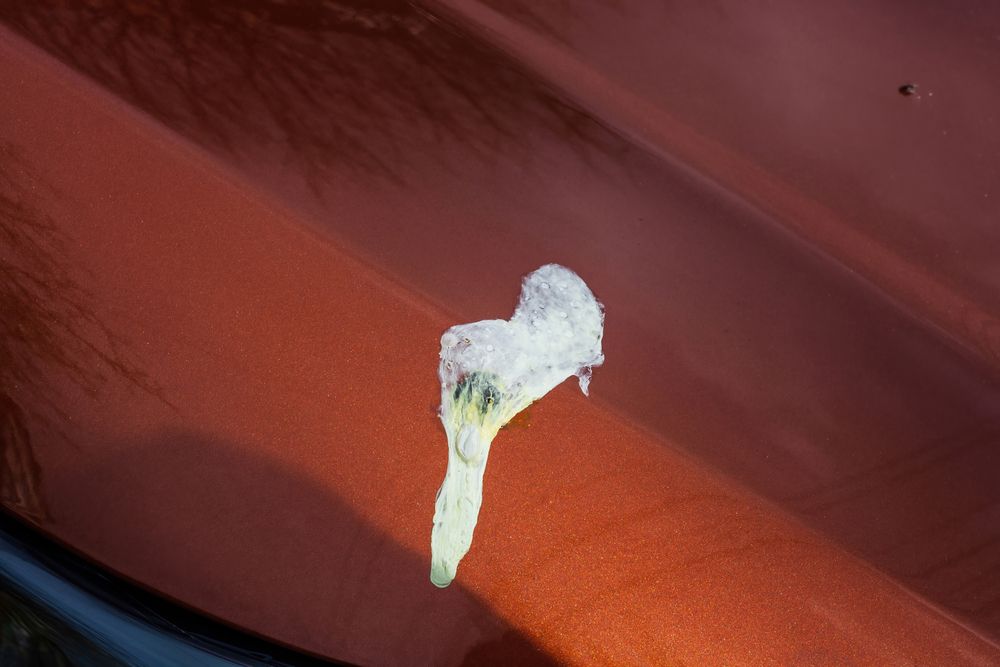
Windex is a popular household cleaning solution that works well for
reflective surfaces. A common question is whether or not it can be used to
clean the exterior of a car.
Windex can harm car paint and should not be used to clean the painted
surfaces on the exterior of a car, as it contains chemical ingredients like
ammonia and isopropanolamine that can damage the vehicle's clear coat and
paint layers. While the cleaning solution can be used for windows and
mirrors, original or ammonia-free Windex is not suitable for the exterior
of a vehicle.
If you're considering cleaning your vehicle with this popular solution,
stop right there and keep reading. In this article, we will provide an
in-depth explanation of why Windex is harmful to car paint with some
suggestions on what you should use instead.
 Cleaning a car window with windex.
Cleaning a car window with windex.
Can I Clean My Car With Windex?
You should not clean the exterior of your car with Windex. Apart from the
car's glass surfaces, such a strong cleaning solution is not ideal.
While car paint does have a similar shiny finish to a mirror or window,
this type of surface is not strong enough to hold up against the chemicals
Windex contains.
The chemical cleaner is made with a long list of ingredients that are
harmful to the exterior paint. These include linalool, isopropanolamine,
butylphenyl methylpropional, and 2-hexoxyethanol. The main ingredient in
Windex that concerns car owners is ammonia.
While Windex can be used carefully on your car's windows and mirrors, you
should be cautious to avoid spraying the solution anywhere else. If it
comes in contact with your exterior paint it can cause a lot more damage
than it's worth.
 Regular windex contains ammonia.
Regular windex contains ammonia.
Does Ammonia Hurt Car Paint?
Ammonia is extremely harmful to car paint. Vehicles have a clear coat on
top of the paint as a protective layer to shield the exterior from the
elements.
Ammonia is an irritating gas that can easily penetrate this layer, exposing
your car's paint completely. With long-term use, ammonia can burn through
the actual paint after the clear coating has been removed.
For cleaning, ammonia is typically diluted with water to create a safer
solution. When it comes to cleaning your car, no amount of ammonia is
ideal. Even a diluted spray is much too strong for your car's paint to
withstand.
Is Ammonia-Free Windex Safe On Car Paint?
Ammonia-free Windex is not safe on car paint, either. Being that ammonia is
one of the key ingredients in Windex that makes it less than desirable for
cleaning the exterior of a vehicle, this is a common misconception.
If ammonia is the root of the problem, it would make sense that removing it
from the list of ingredients would make Windex a safe option. However, the
other chemical additives found in Windex will be just as harmful to your
car's paint. Instead, you should use a gentle cleaning solution that won't
damage or strip the paint.
What Cleaner Is Safe On Car Paint?
Many gentle cleaning solutions like car wash soap, vinegar, and baking soda
can help you add shine to your car's exterior without stripping the paint.
Continue reading this section if you're wondering “what cleaner is safe on
car paint if Windex won't work?”
 Car soap bubbles on the surface of a car.
Car soap bubbles on the surface of a car.
Car Wash Soap
The first answer to this question is also the most obvious. You can
purchase a gentle car wash soap online or at almost any retailer. These
products are specifically formulated to clean your vehicle's exterior
without ruining its appearance.
Vinegar
Vinegar is an ingredient you probably have in your cabinets already. Mix 3
parts water with 1 part vinegar to create a paint-friendly solution for
your car's exterior.
Baking Soda
Baking soda is a natural cleaning agent that can work wonders for cleaning
your car. Fill a bucket with water and add one cup of baking soda to every
gallon for a DIY car wash soap.
What Ruins Car Paint Instantly?
Substances including dust, bird droppings, and coffee can ruin the paint on
your vehicle's exterior almost instantly. Windex and ammonia are not the
only culprits of stripped car paint. Below are some of the most common
causes of this problem.
Dust
Dust that sits on the exterior of your car, especially for an extended
period of time, can be detrimental to the paint job. Any movement of the
particles can result in instant permanent scratches.
Beverages
Spilling beverages on your car, including soda and other carbonated drinks,
can ruin the paint. This also applies to hot beverages like coffee and tea.
These liquids are strong enough to alter your vehicle's exterior
permanently.
Salt
Salt is pleasant when used for cooking and other household purposes.
However, the same is not true for cars, specifically the paint. In areas
that snow in the winter, salt is sprinkled in public places, making it more
likely for cars parked outside to sustain paint damage.
Brake Fluid
Brake fluid contains harmful chemicals that should not come in contact with
your car's exterior. Similar to Windex and other strong cleaning solutions,
brake fluid can burn the clear coat off the paint on your car almost
instantly.
 Bird poop on car paint.
Bird poop on car paint.
Bird Droppings
Bird droppings are commonly seen on the windshields, roofs, and hoods of
cars parked outside. If you're unlucky enough to be a victim of this, your
car's paint could be in trouble.
Accidents
Along with chemical solutions and harsh liquids, physical damage to the
body of your car can cause the paint to chip or crack. If you collide with
another vehicle, your paint can be immediately destroyed.
Improper Cleaning
Finally, improper cleaning of the outside of your car can cause problems
with the finish. A common mistake many vehicle owners make is using dish
soap, hand soap, and window cleaners as a car washing solution.
While these materials are readily available and convenient to use, they are
too harsh for the delicate paint on a car. In addition, using a dirty cloth
to clean your vehicle can result in scratches that damage the paint.
Final Thoughts: Windex and Car Paint
Although Windex works great for glass, it should not be used to clean your
car. The chemicals contained in the solution should never come in contact
with your vehicle's exterior paint. The same is true for ammonia-free
Windex, as this ingredient is not the only concern.
It's perfectly fine to use Windex for cleaning your car's mirrors and
windshield, however this should be done carefully to avoid contact with
nearby surfaces.
Instead of Windex, use a dedicated car wash soap. Some gentle DIY solutions
include vinegar or baking soda mixed with water. Be sure to use one of
these solutions and a clean cloth to avoid paint damage from improper
cleaning.